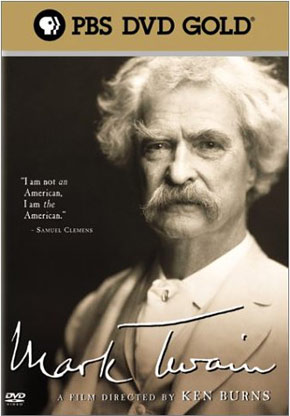 Along with David Cross, Zach Galifianakis and Patton Oswalt, Eugene Mirman has liberated stand-up comedy from the zany fratboys and sweater-clad neurotics. Mirman’s latest album, God Is A Twelve-Year-Old Boy With Asperger’s (Sub Pop), isn’t representative of a “new breed” of comedy or a supposedly edgy advancement in humor; it’s a collection of smart, imaginative bits that embody the anger, absurdity and awkwardness of everyday life. You might also say it’s full of guffaws. Mirman, who also published a book this year (the mock-advice tome The Will To Whatevs) and regularly appears on HBO’s Flight Of The Conchords, is guest editing magnetmagazine.com this week. Read our Q&A with him.
Along with David Cross, Zach Galifianakis and Patton Oswalt, Eugene Mirman has liberated stand-up comedy from the zany fratboys and sweater-clad neurotics. Mirman’s latest album, God Is A Twelve-Year-Old Boy With Asperger’s (Sub Pop), isn’t representative of a “new breed” of comedy or a supposedly edgy advancement in humor; it’s a collection of smart, imaginative bits that embody the anger, absurdity and awkwardness of everyday life. You might also say it’s full of guffaws. Mirman, who also published a book this year (the mock-advice tome The Will To Whatevs) and regularly appears on HBO’s Flight Of The Conchords, is guest editing magnetmagazine.com this week. Read our Q&A with him.
 Mirman: I love the documentaries of Ken Burns. That guy can tell the shit out of a story. His Mark Twain one is one of my favorites. (Sorry to distract you, but it just occurred to me—how much would it cost to have Ken Burns make a documentary about Bossom Buddies? Just curious? I bet he’d make that show seem waaaaaay more important than it was.) Anyway, this film is an amazing look into the life and peculiarities of America’s greatest humorist and arguably first standup comedian. I haven’t seen it in a few years and just bought it again last week (last time I lend Mike Birbiglia a movie), so if I get something wrong, forgive me. The movie opens with a helicopter landing at a military base and starting to shoot everyone. It turns out it’s actually a robot from another world looking for the Omni-Spark. I don’t want to spoil too much, but just a few great things from the film: Mark Twain’s real name is Samuel Clement (I messed that up on purpose to infuriate know-it-alls), he didn’t want to invest in the telephone because he didn’t think that many people would have one (other than him, Alexander Graham Bell and the president), and he was part of a secret government program called Black Briar. Lastly, I now hope that one day I’ll come across a Ken Burns’ Blu-ray disc (maybe about the Kennedys?), and on the cover it’ll say, “I love the documentaries of Ken Burns. That guy can tell the shit out of a story. —Eugene Mirman.” Not likely, but like his films, my desire is uniquely American. Video after the jump.
Mirman: I love the documentaries of Ken Burns. That guy can tell the shit out of a story. His Mark Twain one is one of my favorites. (Sorry to distract you, but it just occurred to me—how much would it cost to have Ken Burns make a documentary about Bossom Buddies? Just curious? I bet he’d make that show seem waaaaaay more important than it was.) Anyway, this film is an amazing look into the life and peculiarities of America’s greatest humorist and arguably first standup comedian. I haven’t seen it in a few years and just bought it again last week (last time I lend Mike Birbiglia a movie), so if I get something wrong, forgive me. The movie opens with a helicopter landing at a military base and starting to shoot everyone. It turns out it’s actually a robot from another world looking for the Omni-Spark. I don’t want to spoil too much, but just a few great things from the film: Mark Twain’s real name is Samuel Clement (I messed that up on purpose to infuriate know-it-alls), he didn’t want to invest in the telephone because he didn’t think that many people would have one (other than him, Alexander Graham Bell and the president), and he was part of a secret government program called Black Briar. Lastly, I now hope that one day I’ll come across a Ken Burns’ Blu-ray disc (maybe about the Kennedys?), and on the cover it’ll say, “I love the documentaries of Ken Burns. That guy can tell the shit out of a story. —Eugene Mirman.” Not likely, but like his films, my desire is uniquely American. Video after the jump.
http://www.youtube.com/watch?v=7vcb4_Qyroc







2 replies on “Eugene Mirman’s Guide To Modern Life: Ken Burns’ “Mark Twain””
ken burns kind of sucks.
http://www.nd.edu/~jgodmilo/reality.html
he uses documentary as a kind of national therapy, producing a kind of mourning moment, a nostalgia for the past, in which one can find no useful questions or analyses that we could employ in today’s realities. And there’s no active audience produced – just a sort of dreamy, passive audience that gains a sweet, sad knowingness about the Civil War, but not a knowledge that provides insight into the economic, social, and racial structures that produced so many dead bodies, such waste of property, and such difficult political problems for the future.
Your comment is baseless, especially because you just copied and pasted it from a source without giving it proper attribution. (Yeah, that link–that’s not attribution. I had to read for quite a while after I went there to determine just who the hell made that statement.) Anyway, it was kind of a dead giveaway because no one who makes their argument by saying, “ken burns kind of sucks” would be capable of articulating something as well as the quotation does in the form of an actual original thought. But still, the quotation is probably not very incisive, to anyone who has actually viewed Burns’s documentaries without bias. Sure, they are nostalgic. Would it be possible to cover subjects like Mark Twain, baseball, jazz music, the Civil War without being nostalgic? These subjects (and, really, all of his others) cover more than a hundred years in scope. That will involve nostalgia. And “documentary as a kind of national therapy” can certainly be a useful and welcome byproduct of a documentary–but I hardly believe anyone associated with Burns’s projects (and that’s a lot of people) would state that as some kind of overarching goal, as the quotation seems to assert. But when you consider the insights of people like the historian Barbara Fields in the Civil War series (as a single example), the quotation above especially seems to ring hollow. I would argue that she has tremendous insight in that series and provides excellent social, racial, political context for the subject matter. If you watch Burns’s projects and don’t ponder the myriad questions they raise and their relevance for today, you are just an ignorant person or are jealous of his style or success. That attitude seems quite apparent in the quotation above. So, thanks for sharing that, friend-o.